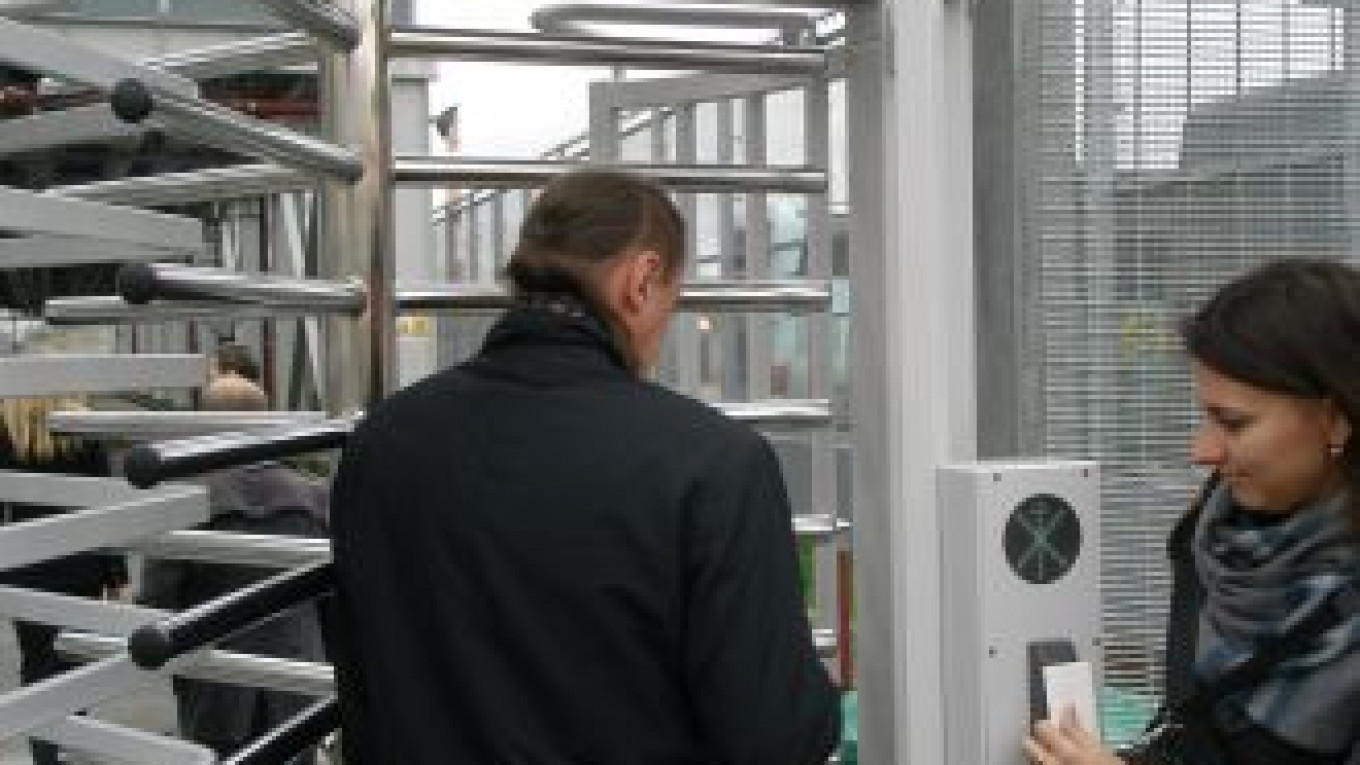An iris scanner and biometric hand reader might not be the first things that come to mind when considering the requirements for fulfilling Moscow's ambition to become an international financial center.
But the security systems in the newly completed Tier-3 data center opened in Moscow on Thursday by DataSpace will play a key role in storing data from its customers working in the finance sector. David Hamner, chief executive of DataSpace, also expects companies working in telecommunications to locate their computers and data storage equipment in his center.
The new facility, which costs $90.5 million, is the only completed data center in Russia to have received Tier-3 certification — meaning it can provide continuous service for clients without shutting down for repairs or maintenance upgrades.
Batteries capable of powering the revamped tire warehouse independently for 10 minutes and six diesel generators that start within five seconds of any disruption in power ensure that all systems are continuously online.
The DataSpace center is the first facility in Russia and Eastern Europe with Tier-3 status, Julian Kudritzki, vice president of Uptime Institute, a global authority on data centers, said in a statement to The Moscow Times.
"In the past, data centers in Russia have misrepresented their capabilities by displaying on their … web sites Tier-3 capability," Kudritzki said. The Uptime Institute officially validates all facilities before approving their status.
MegaFon in Samara and CROC International in Moscow are the only other organizations in Russia that have attained Tier-3 status for their designs, but they have yet to implement those designs and develop an actual facility, Kudritzki said.
Clients will begin transporting computing equipment into the 6,000-square meter facility next month, and by the second quarter of next year all 12 data halls are expected to be subscribed.
Hamner, of DataSpace, said concerns for security are one of the highest priorities for his clients, and the measures he has implemented permit only confirmed employees of clients to have access to the equipment and data.
If ever served with a legitimate official request from authorities for access to the center, Hamner said he would comply. But any other attempt to get at a customer's equipment or information would most likely be unsuccessful — there are high-tech security systems including extensive video monitoring, as well as round-the-clock guards who give the impression of being trained significantly more thoroughly than the average Moscow security guard.
This first facility is part of a greater $250 million project by DataSpace to build five more centers. The company maintains that it has enough demand to justify the investment in the next three already.
A Message from The Moscow Times:
Dear readers,
We are facing unprecedented challenges. Russia's Prosecutor General's Office has designated The Moscow Times as an "undesirable" organization, criminalizing our work and putting our staff at risk of prosecution. This follows our earlier unjust labeling as a "foreign agent."
These actions are direct attempts to silence independent journalism in Russia. The authorities claim our work "discredits the decisions of the Russian leadership." We see things differently: we strive to provide accurate, unbiased reporting on Russia.
We, the journalists of The Moscow Times, refuse to be silenced. But to continue our work, we need your help.
Your support, no matter how small, makes a world of difference. If you can, please support us monthly starting from just $2. It's quick to set up, and every contribution makes a significant impact.
By supporting The Moscow Times, you're defending open, independent journalism in the face of repression. Thank you for standing with us.
Remind me later.






